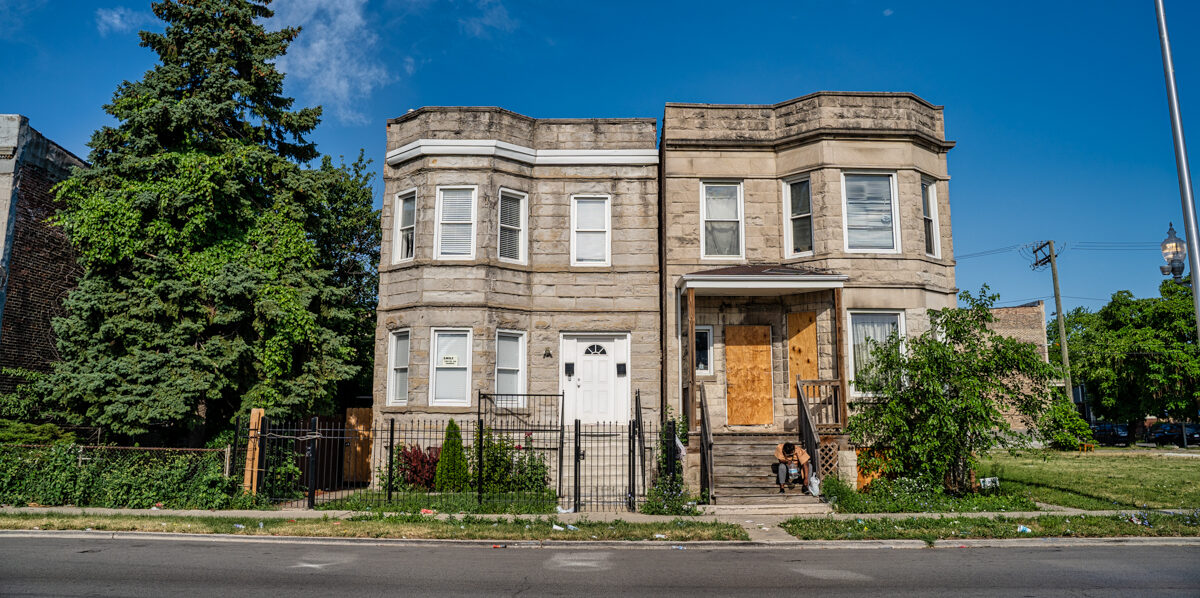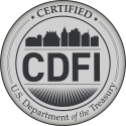
HAF Home Repair Program
Thank you for your interest in the HAF Home Repair Program. The application portal is now closed.
Program Overview
NHS has partnered with the Illinois Housing Development Authority (IDHA) to administer the Homeowner Assistance Fund Home Repair Program (HAFHR). The program helps homeowners who have been financially impacted by COVID-19 make eligible critical home repairs of up to $60,000 per household. The home repair grants carry a 3-year forgivable recapture agreement.
Please note that due to limited program funding, not all eligible households will receive assistance.
Eligible repairs are intended to maintain the habitability of a home and prevent homeowner displacement. Examples of home repairs include but are not limited to the following:
- Addressing health, safety and code violations;
- Roofing, soffit/fascia/gutters, drainage and runoff management;
- Electrical and plumbing systems;
- Foundations, existing decks and existing porches;
- Modifications and improvements for accessibility to allow the elderly or disabled to age in place;
- Environmental modification and improvements;
- Other vital and necessary repairs specific to the home’s needs.
NHS HAFHR constructions projects are anticipated to begin for some in the Summer 2024 and through 2025. This program is not for urgent repairs.
Please review the following carefully to see if you qualify for the program.
Eligible Households
- Experienced a financial hardship after January 21, 2020 related to the COVID-19 pandemic
- Have income less than or equal to 150 percent of the area median income (as determined by geographic proxy, when applicable)
- Own and occupy the property as the primary residence
- Are current on mortgage payments or do not have a mortgage payment
- Homeowners who received HAF housing assistance are eligible to apply
Eligible Properties
- Located in the City of Chicago
- Single-family homes, condominiums, and cooperative units
- Buildings with 2-to-4 units are eligible for the homeowner-occupied unit and common areas
- Mobile homes are eligible for the program if they are on a permanent foundation and taxed as real estate. The homeowner must also own the land underneath the mobile home
- All properties must be held in fee simple title
- Reverse mortgage, home equity line of credit, contract for deed or ownership held in a trust are all ineligible ownership models for this program
- Property value cannot exceed $290,000.00 per Single Family Home / Unit
Income Eligibility
HAFHR Grants are available to households earning up to 150% of the Area Median Income (AMI) for the Chicago Metropolitan Area.
Please see table below to determine if you meet the income eligibility requirement. Household size and income will be verified by using tax returns and other financial documents during the application process. Please refer to the list of required documents you will need to complete the application process.
| Number Of People In Your Household |
Maximum Allowable Income (150% AMI) |
|---|---|
| 1 Person | $115,950 |
| 2 Person | $132,450 |
| 3 Person | $148,950 |
| 4 Person | $165,450 |
| 5 Person | $178,800 |
| 6 Person | $192,000 |
| 7 Person | $205,200 |
| 8 Person | $218,400 |
| 9 Person | $231,750 |
| 10 Person | $244,950 |
Required Documents
Download the full list of required documents here.
Proof of Homeowner and Household Inhabitants Identity (ALL persons 18 and older) submit one (1) photo ID document.
- Government-Issued Driver’s License or REAL ID or State ID Card
- Matricula Consular or any Foreign Consulate ID
- U.S. or Foreign Passport
- U.S. Permanent Residency Resident Card
- Tribal identification (ID) card
Proof of Property Ownership
- Copy of recorded deed; or
- Copy of your most recent mortgage statement
- Most recent property tax bill, 2022
Proof of Homeowners’ Property Insurance in Effect
- Copy of Homeowners Insurance Declaration Page
Lease(s) and Receipts for Rental Units- If two or more units within the property
Proof of Household Income: (Submit applicable documents to show all sources of income for all persons 18 or older living in the home)
- Affidavit Concerning Household Size and Income
- Two most recent years (2022-2023 (2021-2022 if 2023 are not prepared)) of Federal Income Tax Returns with all schedules attached for all household members over the age of 18.
- Two most recent years (2021-2022 (2020-2021 if 2022 are not prepared)) W-2 or 1099 statements for all buyers (From all employers)
- Three most recent (past 30-days) paystubs for all household members over the age of 18. (From all employers)
Benefit and Support Income Provide current statement that includes name, address, and telephone number of the source of the income and information about the amount received for each of the following, if applicable.
- Unemployment Compensation
- Social Security
- Supplemental Social Security
- Pension
- Disability Income
- Alimony
- Child Support
- Welfare or other public assistance
- Regular support from family members or friends
Program Certification Document
Next Steps
Applicants that are eligible to move forward will be contacted over the next couple of months to schedule a mandatory in-person program workshop. During the workshop, applicants will meet with NHS to go over the role and responsibilities of the applicant, review the timeline and steps, and sign the program documents. The Grants Team and Constructions Services will be available to answer any questions.
The Path to Approval
Phase I: Household Eligibility
Applicant has submitted a complete application and meets the income and other program guidelines.
Phase II: Property Eligibility
Property meets eligibility based on documents submitted.
Phase III: In-Person Interview
Applicant and NHS staff review and sign program documents
Phase IV: Property Assessment and Feasibility
Construction Services will assess and scope the property to determine if the work will fit within the program parameters.
Phase V: Environmental Clearance
Phase VI: IHDA Approvals
Once IHDA has approved the project, construction begins.
Have Questions?
- Read through our FAQ section below.
- Call our team at 773-329-4111.
- Email our team at homeownership@nhschicago.org
Frequently Asked Questions
How much can I receive to repair my home?
Homeowners may receive up to $60,000 for critical home repairs that were delayed due to the COVID-19 pandemic through a forgivable loan.
What types of repairs and improvements can the program cover?
Program funds can cover needed health and safety repairs, code violation repairs, roofing, electrical/plumbing systems, and modifications or improvements to allow the elderly or disabled to age in place. Other critical repairs may be addressed with this program, depending on the home’s needs.
How long is the forgivable loan term?
The loan is forgiven over three years. The principal balance will be reduced monthly by an amount equal to 1/36th of the original loan amount.
Do I have to repay the forgivable loan?
No, you do not have to repay the loan if you remain in your home for the entire three years. The unforgiven balance will be due out of net proceeds if the home is sold before the term ends.
Is the program offered in my area?
Visit www.IHDA.org to view our list of grantees to see if the program is offered in your area. Contact the participating grantee to apply through them.
Do I need to own my home?
Applicant names must be on the title, and they must currently live in the home as their sole residence.
I already received HAF funds through ILHAF, am I eligible?
Yes, if you received mortgage assistance through ILHAF you are eligible to apply.
How do I know if I qualify?
You must have had a financial hardship after January 21, 2020, related to the Covid-19 pandemic. Your total household income must be at or below 150 percent of the Area Median Income (adjusted for household size). Other eligibility requirements, such as a property value limit, also apply. Contact your local grantee for more information on qualification requirements.
How do I know if my home is eligible?
Single-family homes, condominiums, and cooperative units are eligible for the program. Buildings with 2-to-4 units are eligible for the homeowner-occupied unit and common areas. Mobile homes are eligible for the program if they are on a permanent foundation and taxed as real estate.
The homeowner must also own the land underneath the mobile home. All properties must be held in fee simple title.



